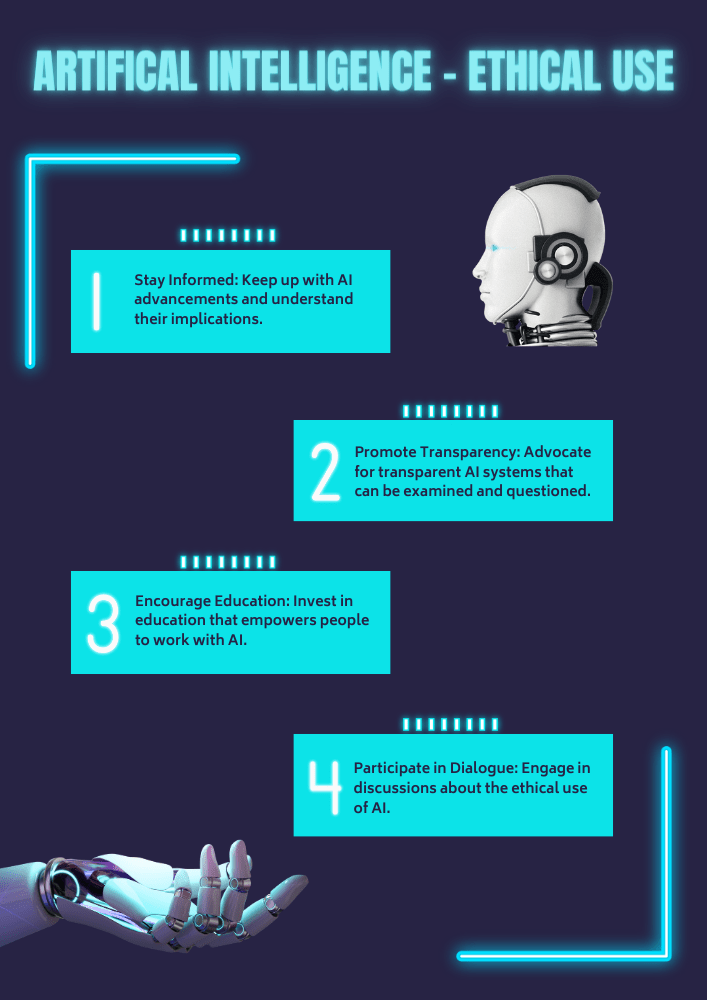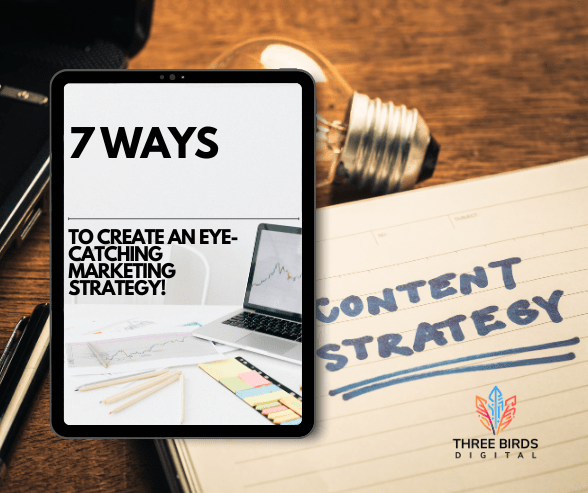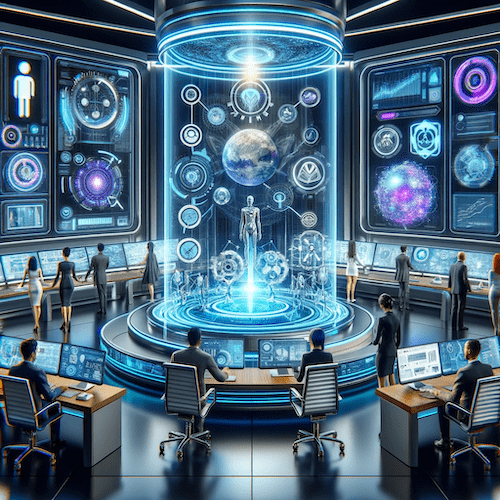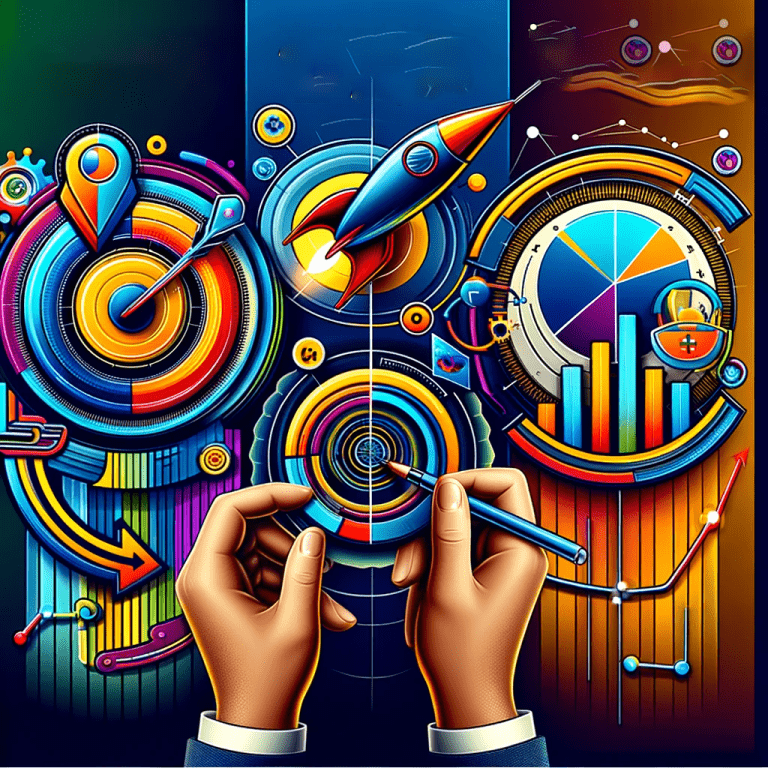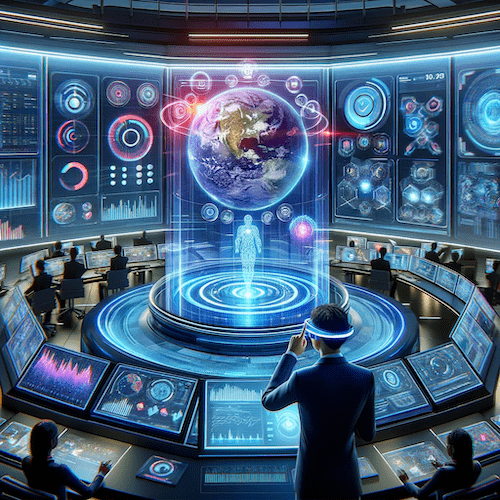
Hello there, curious minds and tech enthusiasts! Today, we’re diving into a topic that’s as enthralling as it is ubiquitous in our modern world: Artificial Intelligence, affectionately known as AI. So, grab your favorite snack, cozy up, and let’s embark on a journey through the realms of AI.
What is Artificial Intelligence, Anyway?
Let’s break it down. Artificial Intelligence is like a computerized brain that’s designed to think, learn, and sometimes even “feel” (in a computational sense, of course) much like humans do. It’s a blend of computer science, cognitive psychology, and even philosophy, all mashed up to create machines that can perform tasks that typically require human intelligence. These tasks range from recognizing your voice, recommending what series to binge-watch next, or even diagnosing diseases.
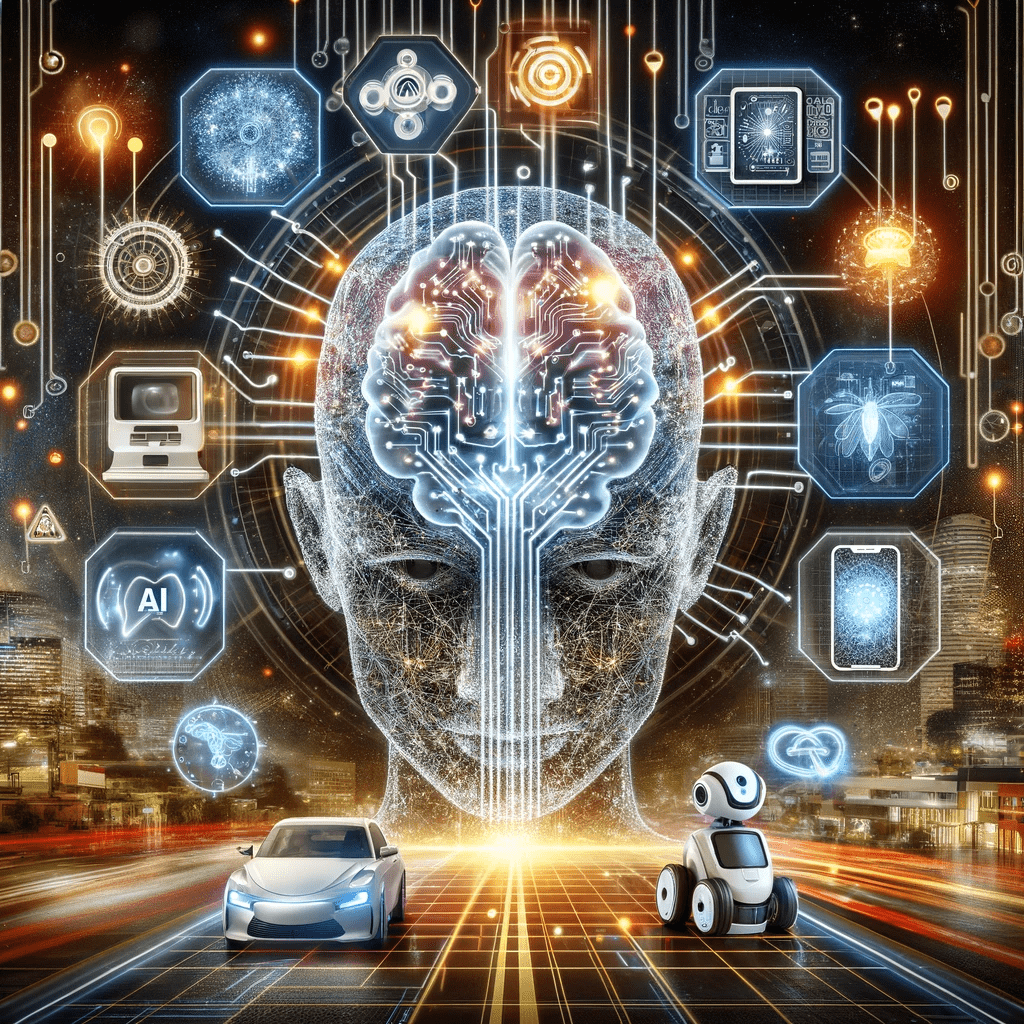
The ABCs of AI: Machine Learning & Deep Learning
So, let’s chat about the ABCs of AI, which is all about teaching machines to learn and make decisions. It starts with Algorithms, the recipes for learning, which thrive on Big Data – the more, the merrier for AI. Computing Power is the gym for AI brains, giving them the strength to process information. Deep Learning is like a brain booster, enabling AI to understand complex patterns like we do. AI also takes tests, known as Evaluation, to ensure it’s on the right track. Features are the specific details AI notices, kind of like the ingredients it looks out for in a recipe
AI Everywhere: From Siri to Autonomous Cars
It’s not just about robots from sci-fi movies. AI is in your smartphone, your car, your home appliances, and even your healthcare. When you chat with Siri or Alexa, they process your voice commands with AI. When Netflix suggests a movie you might like, that’s AI, too. And self-driving cars? They combine AI with radars, cameras, and sensors to navigate the world without a human at the wheel.
How Artificial Intelligence is Shaping Our World
The impact of AI can’t be overstated. It’s transforming industries and changing how we work, play, and interact with each other.
- Healthcare: AI helps doctors diagnose diseases more quickly and accurately.
- Finance: it detects fraudulent activities and automates trading.
- Manufacturing: AI-driven robots work alongside humans to increase efficiency and safety.
- Education: AI customizes learning experiences to students’ unique needs.
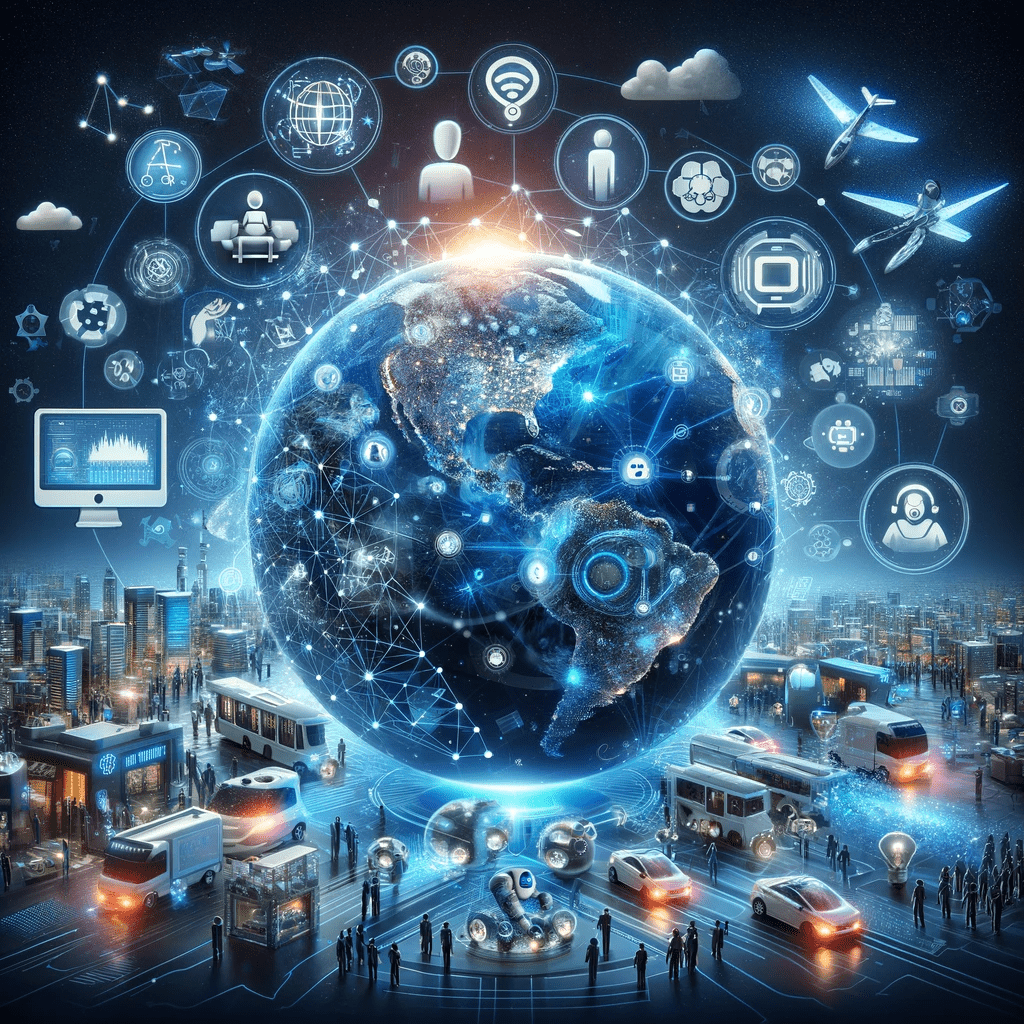
The Good, the Bad, and the Ethical
With great power comes great responsibility. AI opens up a universe of possibilities, but it also raises important questions.
- Job Displacement: Yes, AI might automate certain jobs, but it also creates new opportunities. The key is adapting and learning to work alongside AI.
- Privacy Concerns: Think about all the data AI needs to learn. It’s crucial to ensure this data is used ethically and responsibly.
- Bias in AI: AI systems learn from data, which can include biased human decisions. This means we must curate the data and constantly check for biases carefully.
- AI in Warfare: Autonomous weapons are a controversial topic. The potential for AI-powered weapons requires international dialogues about ethical usage.
AI and Creativity: Can AI Be the Next Picasso or Mozart?
Interestingly, AI isn’t just about logic and efficiency. It’s also exploring the arts. AI algorithms can create paintings, compose music, and even write poetry. These endeavors raise fascinating debates about the nature of creativity and whether it’s solely a human trait.
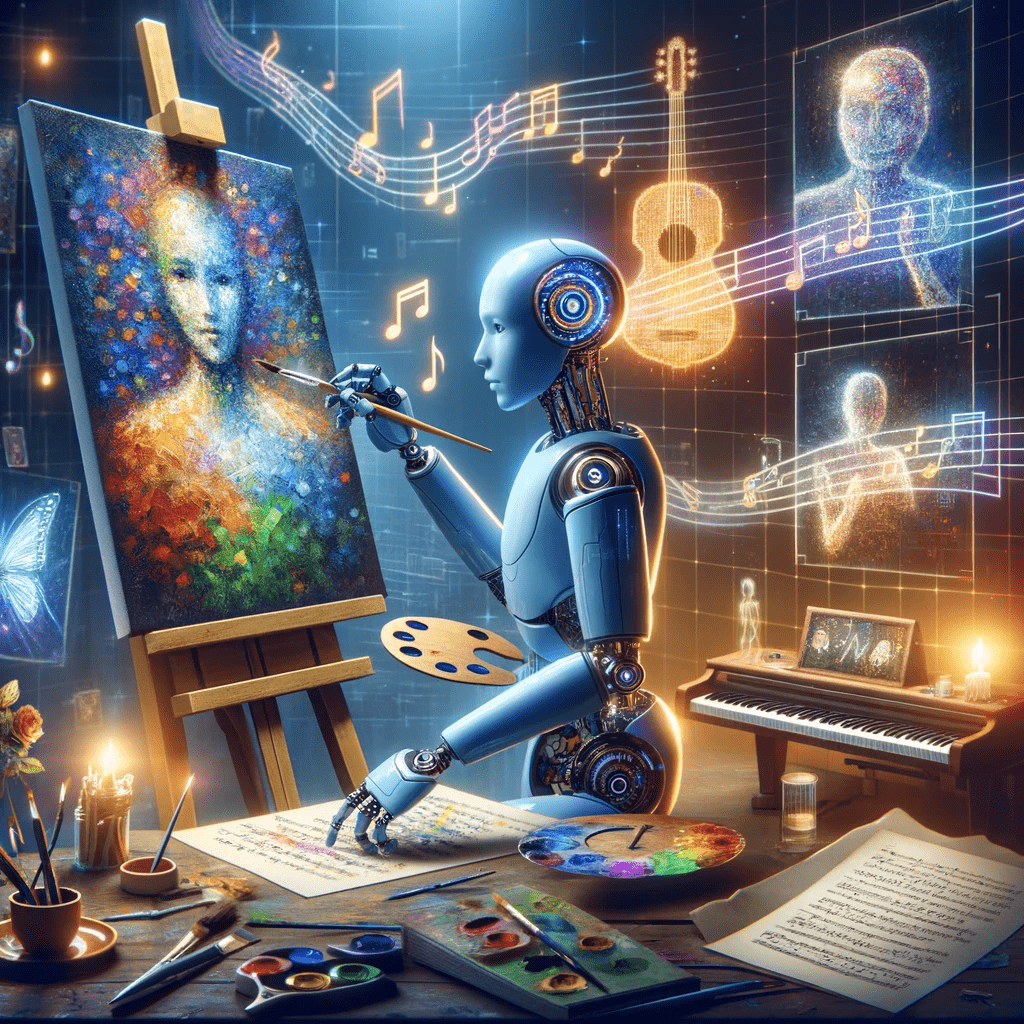
The Future with AI: Utopia or Dystopia?
Predicting the future of AI is like trying to paint a landscape on a moving train—it’s always evolving. But one thing’s for sure: AI will continue to advance.
- We may see AI personal assistants becoming more like companions.
- Smart cities might use AI to manage resources efficiently and reduce waste.
- AI could lead to breakthroughs in solving climate change by modeling complex environmental systems.
However, the future of AI is not just in the hands of scientists and engineers. It’s in everyone’s hands. Public discourse, policy-making, and education about AI are vital to ensure it benefits society as a whole.
Embracing AI Responsibly
So, how do we embrace AI with open arms without getting caught in a tangle of wires? Here are a few pointers:
- Stay Informed: Keep up with AI advancements and understand their implications.
- Promote Transparency: Advocate for transparent AI systems that can be examined and questioned.
- Encourage Education: Invest in education that empowers people to work with AI.
- Participate in Dialogue: Engage in discussions about the ethical use of AI.
Final Thoughts
Artificial Intelligence is not a distant concept from a futuristic novel—it’s here, and it’s shaping our world in real-time. It’s an exciting field that blurs the lines between science and imagination, with the potential to unlock mysteries of the human mind and solve some of our world’s biggest challenges.
As we chart the course of AI, it’s crucial to foster environments where innovation thrives while ethics, accountability, and inclusivity are at the forefront. Whether you’re an AI developer, a business leader, an educator, or simply an interested bystander, your voice and actions will help shape the AI narrative.
AI is not just about the intelligence of machines; it’s about the collective intelligence of humanity working together to harness this powerful tool. So, let’s be mindful of how we build, use, and interact with AI. After all, the future is not just something we enter; it’s something we create, and AI is one of the most potent brushes we hold in painting the canvas of tomorrow.
Are you ready to harness the power of AI? Send Three Birds Digital a message, and we’ll show you how to leverage AI to increase customer loyalty, attract new customers, and automate actions that keep your business going!
